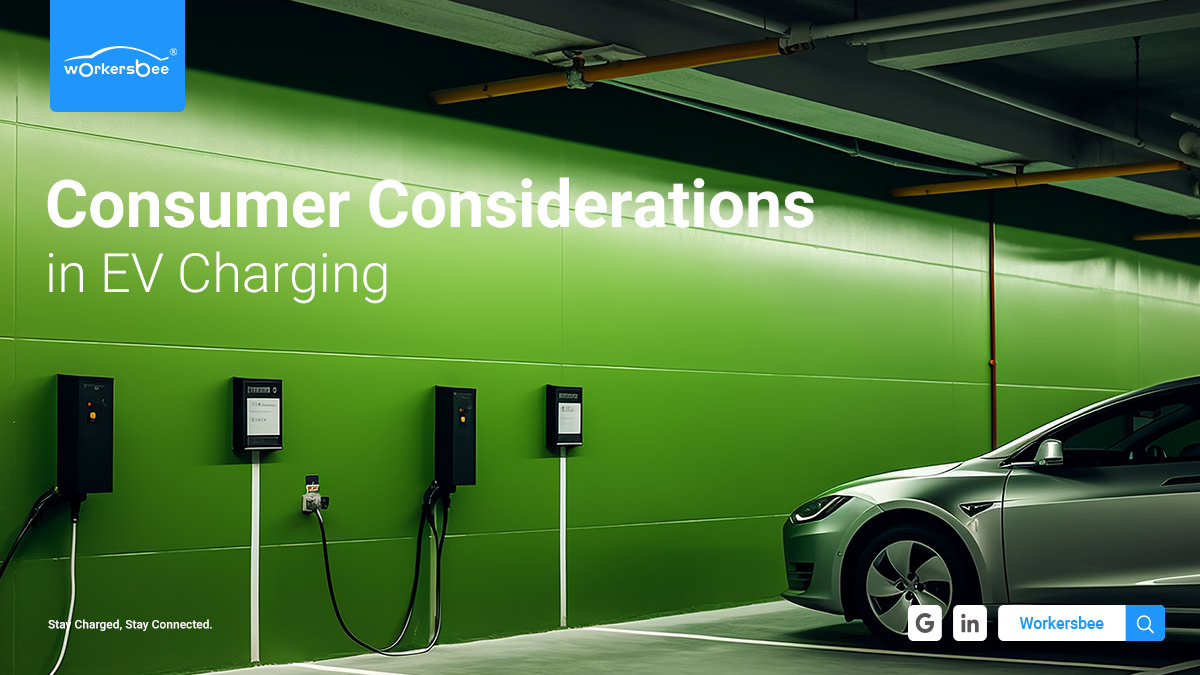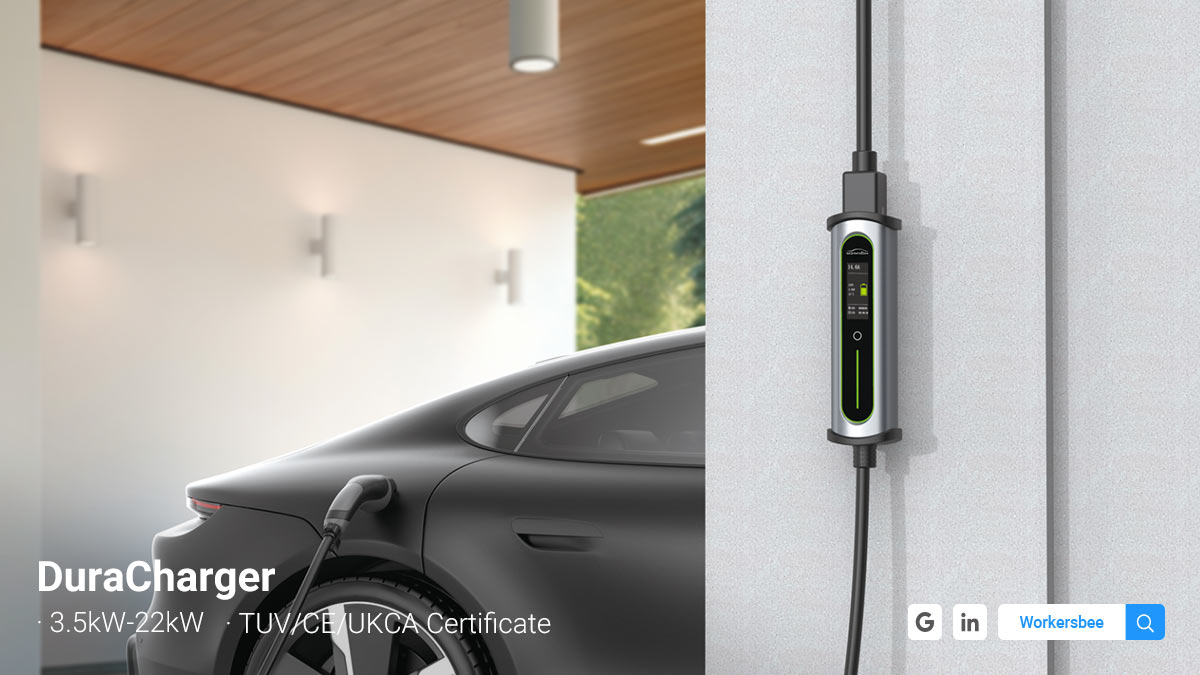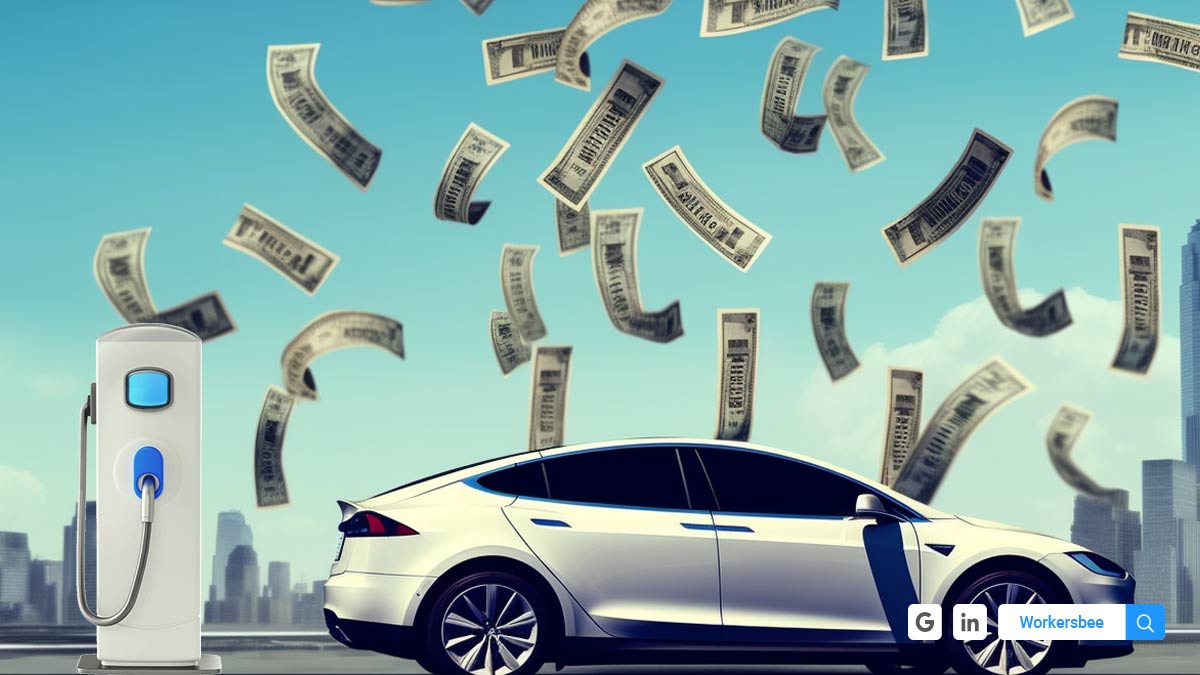
The electric vehicle revolution has swept the world, and those who are the first to take advantage of it have gained an experience never before experienced in driving a fuel vehicle.
Thanks to the instant torque of battery power, electric vehicles start and accelerate faster and are more responsive. Compared with traditional complex internal combustion engines, the electric motors of electric vehicles are simpler, so the control feeling is more stable and precise. In addition, EVs produce almost no noise when driving, making the driving experience more peaceful and comfortable.
So, if anyone asks them about the driving experience, these drivers who have switched to EVs will tell you: It’s COOL!
However, if you then ask about the unavoidable charging experience, many people may hesitate. That's it, even though electric cars have gained a large number of fans because of their driving experience, electric car charging has always struggled to gain high recognition. This can be sensed from the satisfaction surveys sponsored by many utilities or charger companies.
In the final analysis, here are 5 main factors that consumers really consider regarding EV charging.
1.Charging Speed
Consumers hope that the speed (time) of charging an EV is as fast as refueling a gasoline car - this is a direction that both charging technology and EV technology need to strive for. We need to understand one fact: charging speed is related to both the charging infrastructure and the charging capacity of vehicles. It's not enough to achieve fast charging with just one of them.
High-power DC fast chargers are favored by EV owners because they can output large amounts of power in a short time. Especially during long-distance travel, less waiting time undoubtedly encourages them.
As a pioneer China charging cable factory, Workersbee actively caters to market demand. The new generation CCS2 charging connector, utilizing Liquid Cooling technology, has reached a peak output of 700A. Charging for five minutes can increase the range by over 200 km. The stable and efficient charging performance has also earned it a high-standard CE certification.
2.Charging Convenience
Drivers' dissatisfaction with Public Charging Infrastructure probably stems from the lack of available chargers when they need to charge. The number of chargers is far below people's needs, meaning coverage is not ideal.
Surveys of electric vehicle charging habits show that charging may occur at High-power chargers (HPC) on highway corridors, curbside chargers in streets, chargers in public or workplaces, and a large portion at home.
Workersbee's Portable Electric Vehicle Chargers, whether it's the screen-equipped FLEX CHARGER, ePORT, DuraCharger, or the screenless Soapbox series, have received high praise from car owners due to their high compatibility, lightweight, stylish appearance, and intelligent operation.
In addition to requiring available and accessible chargers, drivers need a platform that can quickly find available chargers when their battery levels are low. This may require the joint efforts of maps or various charging network providers.
3.Charging Safety
The safety of the electric vehicle charging process involves multiple aspects.
Consumers expect charging equipment to have high safety standards, with the charging system being safe, reliable, and stable. Ensuring that various safety issues such as leakage and fire do not occur during charging.
At the same time, it is necessary to ensure communication between vehicles and chargers to monitor battery status at all times, prevent overcharging, and maintain battery health. This also requires regular maintenance checks of charging stations to ensure the normal operation of each charger.
Finally, in the payment process, payment security is crucial. Whether it's through card payments or platform deductions, consumers want station operators to ensure the security of their funds.
4.Charging Cost
Compared to the rising cost of gasoline, charging costs are a factor that consumers consider when transitioning to EVs. Owners hope to minimize charging costs while maintaining charging efficiency, thereby reducing the cost of daily driving.
This cost includes electricity costs related to electricity prices, charger types, and regions, as well as installation costs for those who want more convenient private chargers.

However, there are various ways to help consumers reduce costs. For example, at charging stations with a stable customer base, using store value or offering tiered pricing discounts. Or, using utility time-of-use rates to encourage drivers to charge during off-peak hours, avoiding overload pressure during peak periods.
You can also provide bonuses to consumers more loyal to the brand, to increase long-term engagement.
Shared Chargers can be installed in residential areas with concentrated residents to share installation costs.
5.Compatibility
With the continuous growth of the electric vehicle market, various charging standards also have their supporters. Different brands and models of vehicles may require different standards and specifications for charging facilities.
Therefore, consumers hope that charging stations can be compatible with various brands and models of EVs to improve the convenience of charging facilities. At least when they enthusiastically arrive at the charging station, they should find the correct connector and be able to charge successfully.
Workersbee's Business Advantages
1.Comprehensive Charging Solutions: Offering a full range of charging solutions, including charging sockets, charging connectors, charging cables, portable EV chargers, DC/AC charging cables, etc., to meet the customization needs of Commercial Charging Solutions and Residential Charging Solutions.
2.Strong R&D and Manufacturing Capabilities: With over 16 years of experience in manufacturing and supplying EV charging plugs, and over 500 professional talents in the field.
3.Customized Production: Intelligent factories equipped with automated production lines and leading modular designs for multiple products, ensuring high-quality products while optimizing costs.
4.Safety and Reliability: Multiple intelligent safety protection measures, dual temperature-controlled plug design, ensuring the safe operation of equipment.
5.International Certifications: Products have obtained CE, TUV, UKCA, UL, RoHS, and other certifications.
Conclusion
Overall, electric vehicle consumers consider charging speed, convenience, safety, cost, and compatibility when charging. These factors will directly affect consumers' purchasing decisions and usage experiences when transitioning to electric vehicles, further influencing the adoption rate of electric vehicles.
Workersbee has always focused on these EV charging focal points, and we believe that with technological development and policy support, the charging environment will become brighter. Welcome to discuss with us the charging solutions that suit your business, and together promote the popularity of electric vehicles and improve the charging experience.